|
When it comes to maintaining a comfortable and well-regulated living environment, your HVAC system plays a vital role. Whether you need to plan routine maintenance or install a new heating or cooling system, choosing your HVAC contractor can have a major impact the outcome.
With the market flooded with HVAC contractors, it's essential to choose the right one who not only delivers top-notch services but also ensures a hassle-free experience for you and your home. In this blog post, we'll explore the critical considerations before selecting an HVAC contractor and why Union City HVAC Services stands out as a full-service HVAC contractor.
0 Comments
The world of commercial HVAC systems is experiencing a transformation due to the influence of emerging trends, especially driven by the Internet of Things (IoT). At Union City HVAC Services, we understand the impact of these developments and strive to stay ahead of the curve to provide cutting-edge heating and cooling solutions for businesses. Whether you're a heating and cooling company or an HVAC equipment manufacturer, it's essential to keep up with these trends to thrive in this dynamic industry.
Let's delve into the five emerging trends that are reshaping the commercial HVAC landscape: 1. Connectivity and Data for Improved Control Modern buildings are now designed with a focus on sustainability, incorporating smart meters, thermostats, and sensors to optimize energy efficiency. Building owners and managers can control not only temperatures but also humidity levels and airflow using Wi-Fi-connected softwares. This remote monitoring and control can be done conveniently from desktops, tablets, or smartphones. With data collection and analysis, HVAC systems can identify usage patterns, system status, and performance history, enabling preventive maintenance and quicker repairs when malfunctions occur. Lista de Verificación de Mantenimiento de HVAC de Otoño para Garantizar Comodidad y Eficiencia8/18/2023 A medida que el clima comienza a cambiar en el área de Nueva Jersey, es hora de empezar a pensar en su sistema HVAC y cómo prepararlo para los meses más fríos que se acercan. El mantenimiento de HVAC en otoño es esencial para mantener sus sistemas de calefacción y refrigeración en óptimas condiciones y garantizar la comodidad de los ocupantes en su espacio. En Union City HVAC Services, entendemos la importancia del mantenimiento de HVAC en otoño y estamos aquí para proporcionarle una lista de verificación completa para abordar ahora mismo.
Por qué el Mantenimiento de HVAC en Otoño es Crucial Antes de encender su sistema de calefacción por primera vez en esta temporada, es crucial realizar el mantenimiento tanto en su aire acondicionado como en sus unidades de calefacción. Descuidar estas tareas esenciales puede llevar a reparaciones costosas e ineficiencias en el futuro. Al seguir esta lista de verificación de mantenimiento de HVAC en otoño, puede optimizar el rendimiento de su sistema HVAC y evitar posibles averías. As the weather begins to change in the New Jersey area, it's time to start thinking about your HVAC system and how to prepare it for the cooler months ahead. Fall HVAC maintenance is essential to keep your heating and cooling systems in top condition and ensure the comfort of the occupants in your space. At Union City HVAC Services, we understand the importance of fall HVAC maintenance, and we're here to provide you with a comprehensive checklist to tackle now.
Why Fall HVAC Maintenance is Crucial Before you switch on your heating system for the first time this season, it's crucial to perform maintenance on both your air conditioning and heating units. Neglecting these essential tasks can lead to costly repairs and inefficiencies in the future. By following this fall HVAC maintenance checklist, you can optimize the performance of your HVAC system and avoid potential breakdowns. La industria de la calefacción, ventilación y aire acondicionado (HVAC) ha estado experimentando una fascinante transformación impulsada por avances tecnológicos, cambios en las preferencias del consumidor y un creciente enfoque en la eficiencia energética. En este artículo, exploraremos las tendencias actuales y las perspectivas futuras del sector HVAC, revelando cómo está preparada para un crecimiento e innovación notable en los próximos años.
Sistemas HVAC Inteligentes: Liderando el Camino Entre las numerosas tecnologías HVAC, los sistemas HVAC inteligentes han surgido como la atracción estrella, cautivando a los consumidores con la promesa de un rendimiento mejorado y comodidad personalizada. Estos sistemas inteligentes incorporan sensores avanzados, conectividad Wi-Fi e ingeniosos termostatos inteligentes, orquestando una sinfonía de uso de energía optimizado y control remoto perfecto a través de aplicaciones móviles. Tanto los propietarios de viviendas como las empresas han adoptado con entusiasmo esta innovación, elogiando su capacidad para ahorrar energía, mejorar la calidad del aire interior y satisfacer las preferencias individuales. The HVAC (Heating, Ventilation, and Air Conditioning) industry has been undergoing a fascinating transformation, fueled by technological advancements, shifting consumer preferences, and a growing focus on energy efficiency. In this article, we will explore the current trends and future prospects of the HVAC sector, revealing how it is set for a remarkable growth and innovation in the succeeding years.
Smart HVAC Systems: Leading the Way Among the numerous HVAC technologies, smart HVAC systems have emerged as the star attraction, captivating consumers with their promise of enhanced performance and personalized comfort. These intelligent systems incorporate advanced sensors, Wi-Fi connectivity, and ingenious smart thermostats, orchestrating a symphony of optimized energy usage and seamless remote control through mobile apps. Homeowners and businesses alike have eagerly embraced this innovation, applauding its ability to conserve energy, improve indoor air quality, and cater to individual preferences. A furnace is one of the finest options when choosing a new heating system, whether it is for a new installation or to replace an existing HVAC system. Understanding how furnaces operate can help you choose a system that will meet your specific demands as there are several models to choose from that offer a variety of fuel sources.
What Do Fireplaces Do? The purpose of a furnace is to distribute heat throughout a household or business structure. Because the system uses a blower to direct and distribute warm air throughout the house or building, furnaces are also known as forced-air furnaces. How Do Fireplaces Operate? Several variables affect how a furnace functions. There are significant variances between each type, even though they all aim to heat air and then distribute the heated air through a component in the building's ventilation system. The type of fuel utilized and the various heat transmission techniques might cause variations in furnace models. To assist system performance and energy efficiency, certain systems could also contain features unique to their model. Various Furnace Types There are numerous types of furnaces that use various fuel sources. Some furnace models run on propane or natural gas. Other model varieties run on electricity or oil. Wood is another fuel source used by some furnaces. Gas heatersA propane or natural gas furnace operates differently from one another in one fundamental way. With a natural gas furnace, the fuel enters the furnace through a pipe or connection to the gas source buried underground. To hold the fuel, a propane furnace needs a separate storage tank. With either kind, the burner activates as soon as the gas enters the appliance and starts warming the fuel. The unit will then produce warm air by using the cold air already present in the house. This is done by blowing the cold air across the heat exchanger, where it is subsequently heated by the gas burning there. Vents will release the exhaust during the procedure through a flue pipe. The blower fan then takes control of the operation and uses the ductwork to distribute the warmed air to all of the supply registers in the building. The cold air is filtered back via the ducts to the furnace as the warm air is dispersed, raising the temperature. When the desired temperature is reached, the thermostat will shut off the gas supply valve, putting an end to the process of generating warm air further. Reduced heating expenses, cheaper energy bills, more efficiency, improved dependability, and cleaner fuel combustion are all advantages of natural gas furnaces. Additionally advantageous are propane gas furnaces' low cost, adaptability, safety, high level of warmth, and environmental friendliness. Electric heatersThe utilization of a motor to pump cool air into the system is the fundamental concept behind an electric furnace. The air is sent to the furnace's heating components, where it receives heat before being sent back to the ducts. The system is operated by a number of components. A thermostat is used in an electric furnace to regulate the sequencer, one of the furnace's parts. The sequencer is a device that can engage switches to perform duties required for the furnace's operation. It can supply power to the internal components and to the fan and blower that pump warm air through the ducts and into each room's registers by blowing air over the heating elements or coils. The register, which will be equipped with a damper, enables the flow of air into each room to be controlled when the warm air enters them. A limit switch is also used in electric furnaces to enhance safety. When the system is operating normally during the heating cycle, the switch detects the temperature of the furnace and alerts the blower fan when to turn on or off. The limit switch turns the system off if the furnace's internal temperature rises too much and it starts to overheat. Electric furnaces have a number of advantages. These include cost-effectiveness, environmental friendliness, a longer lifespan, and efficient heat generation because an electric furnace doesn't need a separate storage tank. Burning oilAn oil furnace also needs a separate tank to store the fuel, just like the propane furnace does. Additionally, an oil heater works on the same fundamental principles as electric and gas furnaces in that warm air is produced in the system and distributed through the ductwork. When the thermostat drops below the desired temperature, an oil furnace starts up. The fuel pump accesses and draws oil from the storage tank as soon as the furnace is turned on. Before entering the burner chamber, where the fuel is converted from a liquid to a mist, the oil first travels through a filter. The mist is then sprayed onto the burner. Air taken from the inside of the structure is also directed to the burner chamber when it starts to heat to a high temperature. , and as a result, it too becomes hotter. As a result, heated air is released into the duct system, reaching every room. The device will stop cycling hot air once the temperature reaches the desired level on the thermostat and continue doing so until it drops below it. Equipment that is less expensive than that of a gas or electric furnace, less expensive repairs, and the fact that oil is a good heat source are just a few advantages of an oil furnace. Upkeep of a FurnaceYou want to protect your investment in a furnace. An established maintenance schedule protects your investment, improves energy efficiency, and increases equipment lifespan. Systems are properly maintained by qualified professionals with the help of our program at Union City HVAC & Heating. We support equipment maintenance by providing guaranteed appointments, twice-yearly tune-ups, discounts on parts and services, lower service fees, and a lifetime warranty on Union City HVAC & Heating components and labor. As a homeowner, you have a number of maintenance responsibilities that you must attend to throughout the year to safeguard your property and ensure that everything is operating as it should. Even so, if you frequently neglect to have your home's HVAC system serviced twice a year as advised, you are not alone. However, it is essential to have your HVAC system maintained on a regular basis by a reliable technician. This will help to ensure that your system operates effectively and can keep your family comfortable all year long. An HVAC specialist will examine, test, and service important HVAC system parts as part of normal maintenance, helping to prevent wear and tear and guarantee top performance.
Maintain Your HVAC System to Protect Your HomeIt is simple to forget to schedule heating and cooling tune-ups throughout the year, despite the fact that HVAC maintenance is crucial to ensure your system functions correctly when you need it most. The HVAC system in your home is actually out of sight (and out of mind), so it's possible that you won't consider its maintenance requirements until it starts giving you difficulties. However, skipping necessary HVAC maintenance can have detrimental effects that could affect the health of your equipment. Union City HVAC & Heating provides a thorough HVAC maintenance program to assist you in staying on top of your HVAC maintenance. By offering two precise tune-ups a year, our HVAC maintenance program may help you keep on top of your HVAC maintenance and make sure your system is reliable and efficient all year long. Additionally, members of our maintenance program receive lifetime warranties on all parts and services, guaranteed appointments within 24 hours, and discounted parts and services should you experience unanticipated issues with your HVAC system. You might want to think about investing in an HVAC maintenance program if you consistently fail to have your HVAC system serviced as needed each season. Here are just a few advantages of joining an HVAC maintenance program, in addition to aiding you in maintaining critical HVAC maintenance. No reminder is required. Although regular HVAC maintenance is essential for ensuring the dependability of your heating and cooling systems, it is simple to become overworked and forget to schedule a service appointment. Fortunately, forgetting to have your HVAC system serviced will be a thing of the past with an HVAC maintenance plan. In order to ensure that our members schedule their scheduled tune-ups, we make a point of tracking their service history and getting in touch with them. When this happens, an HVAC service program is not only practical because you won't need to remember to have your system serviced, but it also gives you peace of mind. Knowing that the maintenance requirements for your HVAC system are being handled by experts will allow you to relax. Extension of HVAC System LifeThe ability to extend the life of your HVAC system makes it one of the most crucial reasons to have it serviced on a regular basis. The typical HVAC system should last between fifteen and twenty years, but this is assuming that you are giving your system the right care by getting it serviced on a regular basis. Your HVAC system will have to work significantly harder to heat and cool your home if you neglect professional HVAC service. Your furnace/air conditioner will unavoidably be under stress as a result, which could significantly reduce its lifespan. Then, by making an investment in an HVAC maintenance program, you can make sure that your HVAC system lasts as long as possible. Increasing Energy EfficiencyBecause professional HVAC system maintenance can be expensive, many people put it off. However, regular maintenance can end up saving you money over time. Regular maintenance can reduce your energy costs in addition to extending the life of your system and ensuring you get the maximum return on your investment. As we just established, a poorly maintained HVAC system will have to work harder to heat or cool your home. Not only does this result in increased wear and tear that may shorten the lifespan of your system, but the harder your system has to work to maintain comfort in your house, the higher your utility costs will be. Regular system maintenance guarantees optimal energy efficiency, assisting in reducing your electricity costs year-round. Avoid Unexpected FailuresAn HVAC maintenance routine also lessens the likelihood that your heating or cooling system will malfunction suddenly. The last thing you want is for your air conditioner to fail when you need it most—in the middle of summer. Breakdowns can be inconvenient, and in some cases, dangerous, if they occur during bad weather. They can also result in expensive repairs. But if you sign up for an HVAC maintenance service, a qualified expert will frequently check your system. The HVAC specialist may check for potential issues during their inspection and make any necessary repairs before the issue escalates in expense or results in a malfunction of your system. Should your system need repairs, you will also profit from lower service costs as a maintenance program participant. Of course, regular maintenance minimizes wear and tear, which lowers the possibility that your system will break down or need pricey repairs. Keep warranty coverage in placeWhat you might not know is that you probably need to have your HVAC system serviced on a regular basis in order to keep your warranty if it is still active and your system is still relatively new and covered by a manufacturer's guarantee. Your warranty may be voided if you experience difficulties with your appliance and the manufacturer discovers that you omitted to perform routine maintenance. In order to maintain the conditions of the equipment warranty and keep this protection in effect should you ever need it, enrolling in an HVAC maintenance program might be extremely important. In addition to assisting in the protection of your home's heating and cooling systems, investing in an HVAC maintenance plan can help you save money and give you peace of mind knowing that your HVAC system is being maintained by qualified specialists. To find out more about our HVAC maintenance program and the advantages it offers members, feel free to get in touch with Union City HVAC & Heating.  When buying an air filter, there are numerous factors to take into account, including cost and level of quality. A high-quality air filter has several advantages, such as removing dust from the air and reducing allergies, but there are drawbacks as well, such as increased expenses. This piece will compare inexpensive and pricey air filters. In order to make an informed choice, you'll learn about both the advantages and disadvantages of each. Why Is an Air Filter Needed? What Advantages Do Air Filters Offer? There are numerous situations where an air filter may be necessary. Dust, pollen, pet dander, smoke particles, and other air pollutants can be reduced with the aid of air filters. By reducing the quantity of dust and pollen that enters your lungs when you breathe in, they assist in lowering the risk of respiratory infections and other health issues linked to poor indoor air quality (IAQ). By lowering the resistance of heating and cooling systems, air filters help increase airflow and, over time, cut energy costs. They can also aid in lowering the humidity levels in your house. Cleaner indoor air, fewer heating and cooling costs, and an improved HVAC system are all advantages of having a high-quality air filter. Cheap vs. expensive air filter differences Between inexpensive and costly air filters, there are significant differences. The following are some variations between the two: 1. Budget-friendly filters don't last as long as more expensive ones. Cheap filters need to be replaced more frequently because they don't last as long as pricey filters. Paper and cardboard are typically used to make inexpensive air filters. Although these materials are inexpensive to produce, they are not long-lasting. They may only be able to capture half as much dust or pollen before becoming blocked with particles and needing replacement, costing twice as much annual maintenance work (and twice the expense). Additionally, because they deteriorate quickly when exposed to heat or moisture over time, they might require replacement more frequently. 2. Better-quality materials are used to make expensive filters.More premium materials are used in the production of expensive air filters than inexpensive ones. Fiberglass, which is porous and can retain more dust and pollen than materials like cardboard or paper, is a common material used to make them. Additionally resistant to moisture and less prone to tearing than other materials, fiberglass. Although it costs more to manufacture, it is less maintenance-intensive and lasts longer. 3. Compared to cheap air filters, expensive air filters have a larger surface area to filter. You will have a greater surface area to filter particulate matter if your air filter has a higher MERV rating. While also assisting in the reduction of allergens in the home, a high-quality air filter that is a little more expensive can help keep dust and other contaminants out of your lungs. A less expensive air filter might have fewer pleats (also known as folds), which would have less surface area to catch airborne particles. 4. Cheap Filters Don't Remove Dust and Other Airborne Contaminants as Well Cheap air filters have the drawback of not being as effective in removing dust and other airborne contaminants. This is especially true in homes with a higher population of residents, animals, and perhaps people who have respiratory conditions. They'll need to be replaced more frequently, which can end up costing you money over time. Which Is the Best for You? Your needs will determine the answer. Choose less expensive filters if you don't need a product that will last forever and want to save money upfront. They might not be as good at eliminating dust and other airborne contaminants, but they will still function adequately until it's time for a replacement. Your budget will also affect which air filter is appropriate for your house. Look no further than a cheap air filter or simply an affordable air filter if you're looking for an air filter that will keep your home clean while not breaking the bank. Choose an expensive model with a high MERV rating if you want an air filter that will get rid of as many contaminants from the air as possible. If you suffer from allergies or asthma, it can be worthwhile to invest additional money in an air filter that will keep dust out of your lungs as you breathe in while also removing allergens from the air to help reduce your symptoms. But take note that a high MERV can put stress on the air filter. Heavy static conditions render newer motors inoperable. Additionally, if the high-efficiency filter restricts airflow too much, it may freeze up in the summer or trip out on a high heat limit in the winter. In residential applications, it might not always be possible to replace the air filters with considerably larger filters in order to avoid this from happening. Consider purchasing an expensive air filter if you want one that will endure for a long time and eliminate allergens in your house. The materials used in more expensive air filters are typically of higher quality, including metal or plastic. You should get a low-quality air filter if you want a cheap one that needs to be changed frequently. In the end, it's crucial to take into account your needs before making a purchase. Find an air filter that satisfies your unique requirements by doing some research. Keep in mind: It is not about finding an air filter at a lower cost. Finding one that will help you is the key. It may be the least priced one or the most costly one. You will ultimately save money if you get an air filter that meets your demands, regardless of how much you initially pay. RELATED POST: HEATING SYSTEM REPLACEMENT EXPENSES Conclusion Finding the ideal air filter for your house can be challenging, particularly if you don't know what to look for and why different air filters cost different amounts. In order to help you choose the ideal filter for your needs and budget, we've detailed some of the main distinctions between inexpensive and expensive filters in this post. The advantages of both types of filters should now be clear to you, making your choice of which to purchase simple. Try Union City HVAC & Heating if you need installation, repair, and maintenance services for any type of HVAC system. To guarantee that your HVAC system is always operating at its peak performance, we provide thorough maintenance plans. For additional information or to make an appointment, call us at (201) 720-4005 now. Portable versus whole-home standby generatorsAvoid being left without power and unsure of what to do in the event of an emergency. You must be well-prepared for the long haul in case of a calamity. With a strong and dependable backup generator installed, you can remain cozy and keep your family secured in your Union City, NJ, home during any disaster.
What kind of generator—portable or standby—is ideal for your home, though? We'll explore the need for a backup generator for your house in this blog post, as well as the various generator kinds and how our team can assist with installation. Continue reading to learn more. SEE ALSO: WHICH PROVIDES BETTER COOLING: PORTABLE AIR CONDITIONERS OR WINDOW ACS The Need for a Backup GeneratorOne of the challenges with power outages is that you can rarely predict when one might occur. Meaning that some of the most vital times of your life could pass without electricity at home in a second, leaving you feeling helpless, disappointed, or both. The most important appliances in your kitchen, WiFi networks, and home heating may all continue to operate without power with the aid of a backup generator. It's imperative to have a backup generator, but which model is best for your house? What Are the Differences Between Portable and Whole-Home? The minimal differences between portable and whole-house backup generators, often known as "standby" generators, might help you choose which is best for your home even though both offer similar advantages. Both varieties of generators can provide you with backup power when you need it. Yet, it depends on whether you want a more affordable or reliable choice. During an emergency, portable generators will need to be retrieved from storage and kept somewhere in your home (like the garage). It will be connected to your home's circuit breaker, turned on, and used to restore electricity to a few select sections of your home with the help of its rather constrained power supply. These generators might help you keep within a predetermined budget because they are less expensive than standby generators. Whole-house generators, on the other hand, are more expensive but may start automatically the moment your home loses power. They can run on natural gas, so they'll be ready whenever you need them and for extended periods. Whole-home generators deliver a powerful and quiet performance, making them a reliable long-term investment for your family. Union City HVAC can help you.Make it simple to transport any type of backup generator to your home. You can be sure that your project will be handled expertly by our trained installers when you work with Union City HVAC. Delivering robust and long-lasting solutions that you and your family can rely on when you need them most is a top priority for us. You can count on our team of professionals to go above and beyond your expectations from the very beginning of the process to its successful completion. Do you have questions regarding backup generators or how one can help your home? To arrange a free consultation with our staff at Union City HVAC, contact us by phone or via our online form. We eagerly await your feedback! |
AuthorWe are a team of qualified professionals more than ready and committed to provide you with excellent services to ensure that you enjoy the comfort of your home's or office's air and heating systems. Archives
November 2023
Categories
All
|

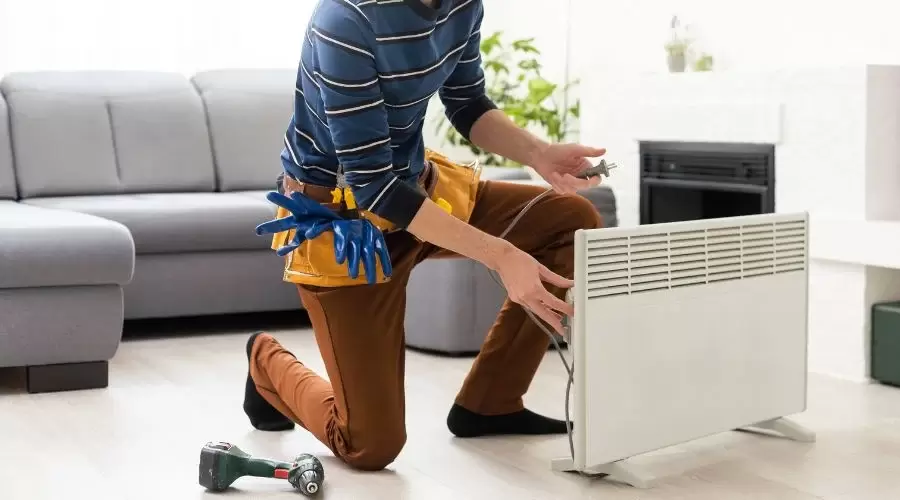

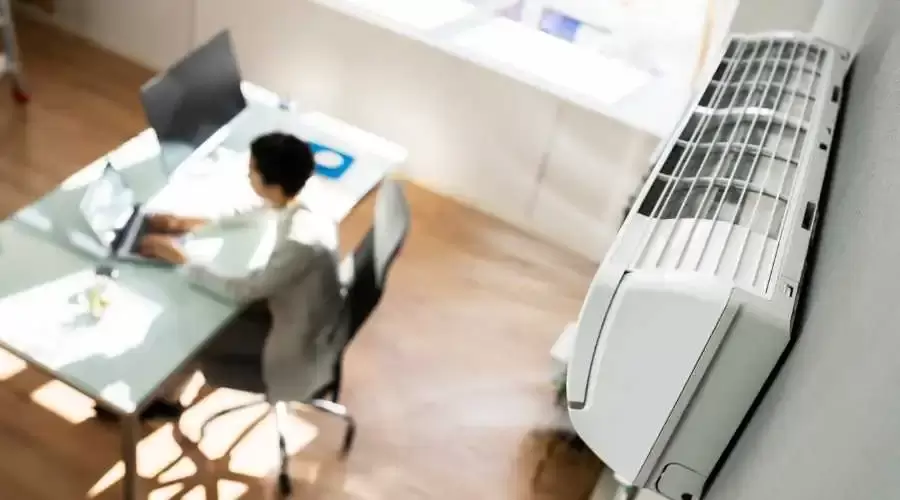

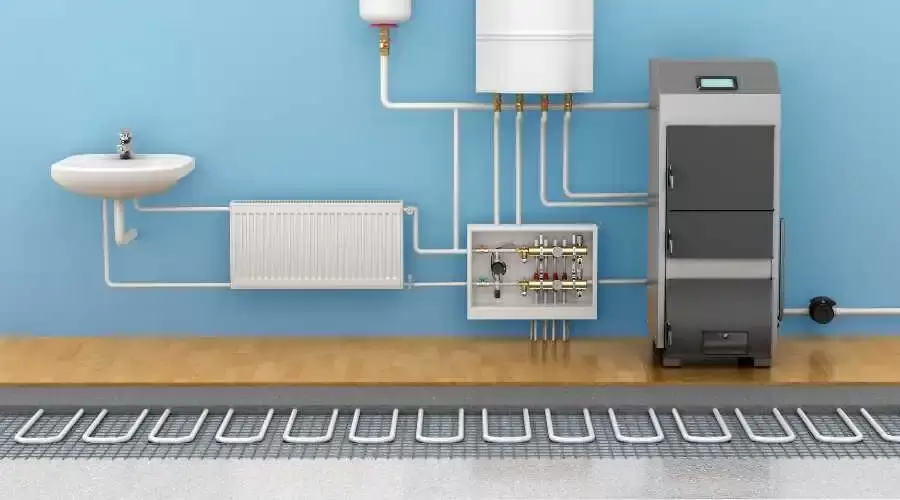
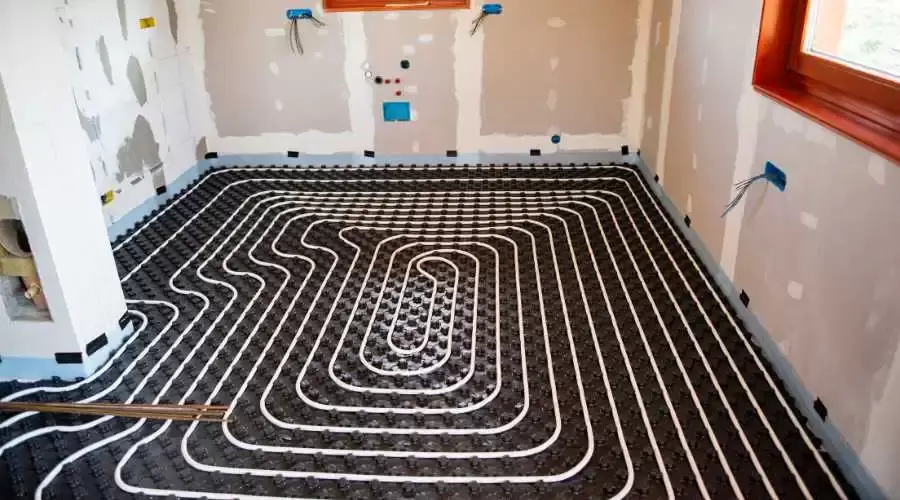
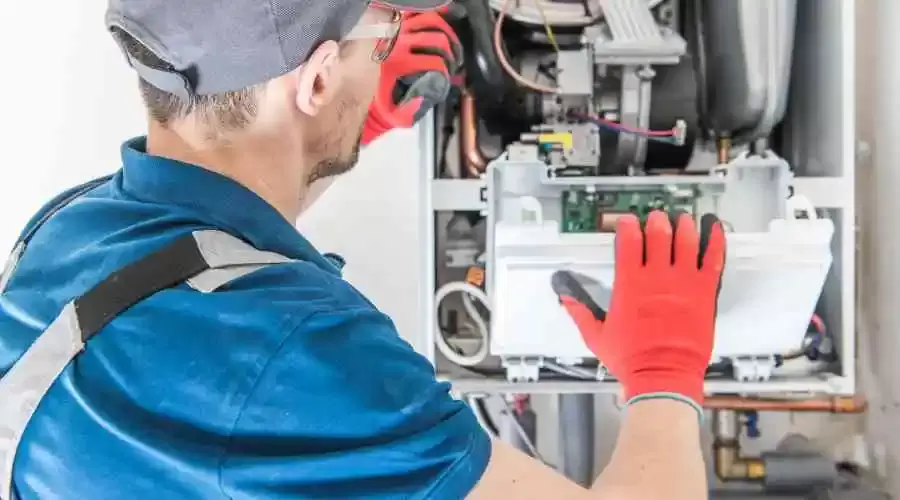

 RSS Feed
RSS Feed
